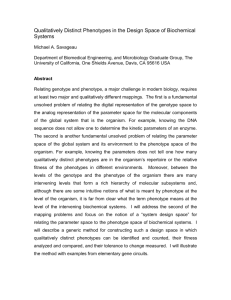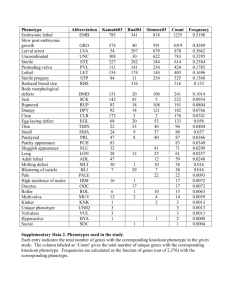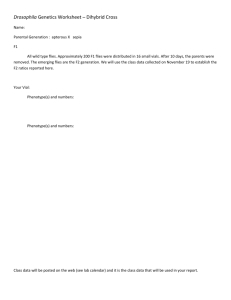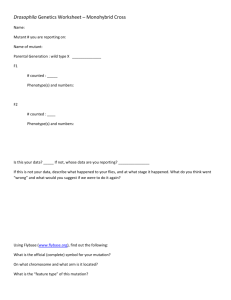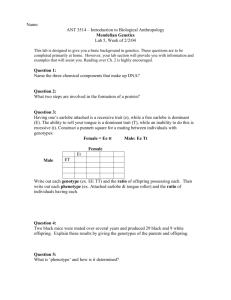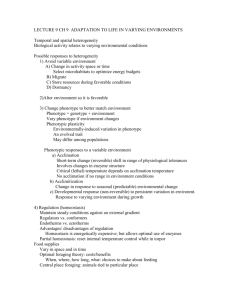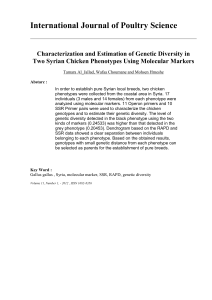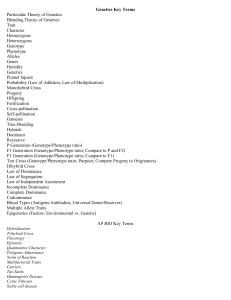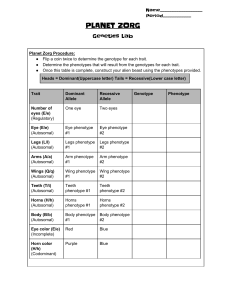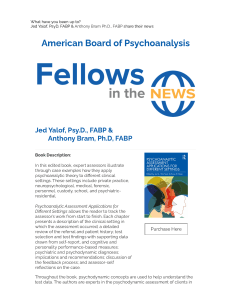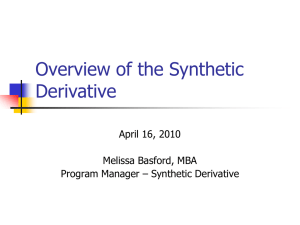Assignment 2013
advertisement
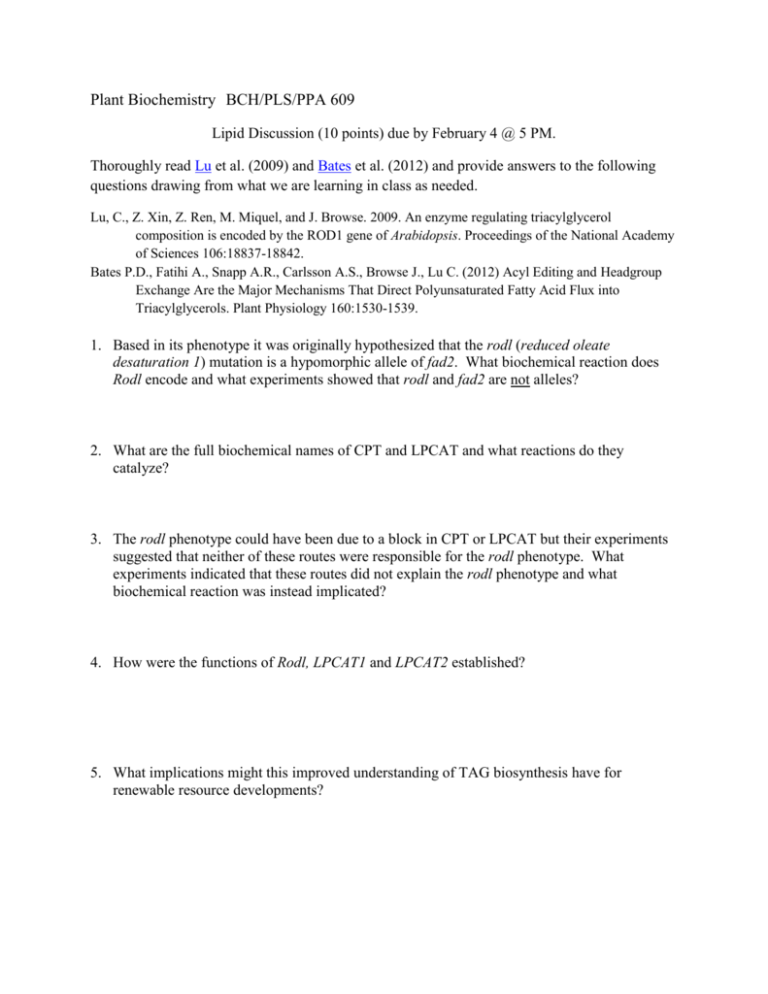
Plant Biochemistry BCH/PLS/PPA 609 Lipid Discussion (10 points) due by February 4 @ 5 PM. Thoroughly read Lu et al. (2009) and Bates et al. (2012) and provide answers to the following questions drawing from what we are learning in class as needed. Lu, C., Z. Xin, Z. Ren, M. Miquel, and J. Browse. 2009. An enzyme regulating triacylglycerol composition is encoded by the ROD1 gene of Arabidopsis. Proceedings of the National Academy of Sciences 106:18837-18842. Bates P.D., Fatihi A., Snapp A.R., Carlsson A.S., Browse J., Lu C. (2012) Acyl Editing and Headgroup Exchange Are the Major Mechanisms That Direct Polyunsaturated Fatty Acid Flux into Triacylglycerols. Plant Physiology 160:1530-1539. 1. Based in its phenotype it was originally hypothesized that the rodl (reduced oleate desaturation 1) mutation is a hypomorphic allele of fad2. What biochemical reaction does Rodl encode and what experiments showed that rodl and fad2 are not alleles? 2. What are the full biochemical names of CPT and LPCAT and what reactions do they catalyze? 3. The rodl phenotype could have been due to a block in CPT or LPCAT but their experiments suggested that neither of these routes were responsible for the rodl phenotype. What experiments indicated that these routes did not explain the rodl phenotype and what biochemical reaction was instead implicated? 4. How were the functions of Rodl, LPCAT1 and LPCAT2 established? 5. What implications might this improved understanding of TAG biosynthesis have for renewable resource developments?
